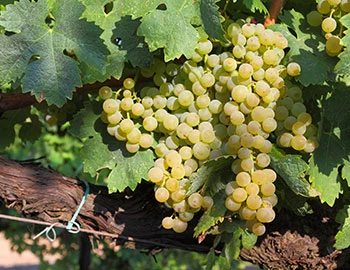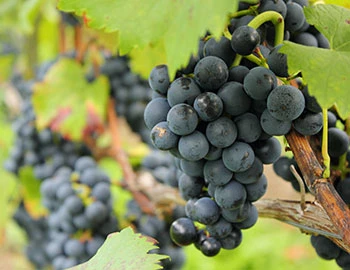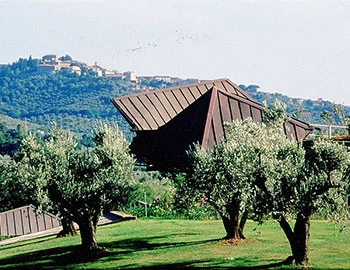Vin Santo 2016
DOC San Gimignano, San Donato, 500 ml

Description
In the nose, beguiling aromas of dried fruits, ground hazelnuts and caramel. On the palate, seductive sweetness with a lot of smoothness and juicy, well integrated acidity. It's a classic Vin Santo you can hardly resist.
Attributes
| Origin: | Italy / Toscana |
| Grape variety: | Malvasia, Trebbiano, Vernaccia |
| Label: | Vegan, Certified organic or biodynamic wine |
| Ripening potential: | 6 to 10 years after harvest |
| Drinking temperature: | 8 to 10 °C |
| Food Pairing: | Fruit tart, Cakes, biscuits, pastries, Panettone |
| Vinification: | fermentation in wooden barrel |
| Harvest: | hand-picking, strict selection, drying of the grapes |
| Maturation: | in partly new and used barriques/ Pièces, long cultivation |
| Bottling: | filtration |
| Volume: | 15.5 % |
| Note: | Contains sulphites |
Trebbiano
Largest wine provider in the world
Whenever someone speaks of Trebbiano, it is important to first ask, "Which one?" It is as though the name was once given to every vine with whitish berries, large clusters, later maturity and strong growth. They are not necessarily related to each other. The most prominent representative is the Trebbiano Toscano. It shows high acidity and a fairly neutral aroma profile. Nevertheless, it produces more wine than any other grape in the world. Cognac is responsible for part of this: after the Trebbiano came to Avignon with the Popes in the 14th century, it trekked further via Languedoc into the cognac region of the Charente. There, it is called Ugni blanc. With its high acidity and subdued aromas, it is perfect for distillation. In Tuscany, it is pressed into Vin Santo. Before 2006, it was additionally a part of the Chianti recipe. Another branch of the family is the Trebbiano d'Abruzzo , which in central Italy ideally yields mineral wines with great aging potential.

Malvasia
A hint of smoke
Lively citrus aromas and a touch of smoke are the hallmarks of the southern French Bourboulenc. It is also known as Clairette blanche or Malvoisie. This white wine grape is almost never produced solo. Instead, it lends its freshness to the white Châteauneuf-du-Pape and many other assemblages in southern France. Its origins lie in the Vaucluse Plateau in Provence. It turns out particularly delightfully in the massif of La Clapa in Languedoc, directly on the Mediterranean. There, the wines from Malvoisie acquire a salty-iodine note.

Italy
Italy – Where wine is a way of life
The Italian wine regions are extremely diverse, and this is made clear in their wines. Established varieties such as Merlot, Syrah, and Sauvignon can be found on just 15 percent of the total vine growing area. The remaining 85 percent is reserved for autochthonous, indigenous varieties. More than 2,000 different grape varieties are grown under diverse conditions and pressed with various techniques into wines that reach the top tier of the international wine market.







